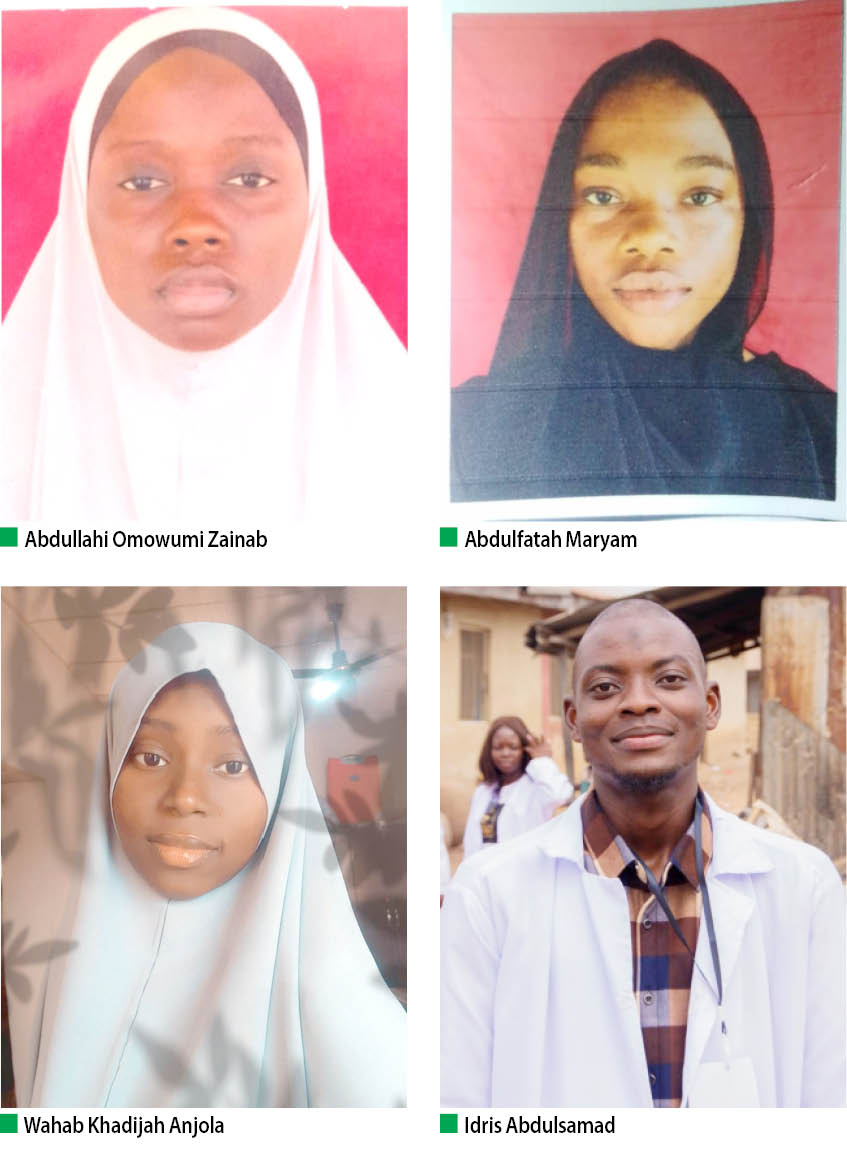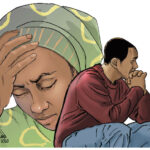The sudden increase of tuition fees and the high cost of living occasioned by the country’s economic crunch are hindering the survival of Nigeria’s university students, Daily Trust on Sunday reports.
A recent data from the National Bureau of Statistics (NBS) showed that the inflation rate is at 33.2 percent, underscoring the cost pressures which have pushed the prices of food higher to limit purchasing power.
The high inflation invariably poses hardship for the average Nigerians, leaving university students who are in the corridors of learning on the pendulum of daily survival and meeting academic demands.
In a cross section of interview with some university students, they lamented the financial toll on them to meet their academic demands with the meagre stipend sent from parents and guardians.
- Nigerian govt intervenes in Teeside varsity students asked to leave
- Minimum Wage: Flight Disruptions, Fuel Scarcity, Darkness Loom As Labour Mobilises For Strike
Students narrate their ordeals
Omotoso Oreoluwa’s excitement as a 100-level student studying Chemistry at the Federal University, Oye-Ekiti (FUOYE) has been greeted by the increase of food prices by about 40 percent, leaving her to survive on a slim budget.
“My pocket money is N10,000. The price for foodstuff has increased. Before, we buy a painter of rice for N1500 but now it is N2,700-N2,800. How do I survive? It has not been easy. In Ekiti State particularly, things are very expensive. It is better to take garri,” she said.
Despite the rise in food prices, Oreoluwa’s tuition’s fee moved from N107,000 to N150,000, coupled with the cost of buying manuals each semester, forcing a surge on her parents to meet multiple demands from her.
“This time, it has not been easy because even our parents, at home, are complaining too. We should just be thanking God. In my school, there are so many challenges; buying manual, paying for this and that.
“The provision and pocket money are not increasing. When I resumed, the school fee was increased. Buying manuals is compulsory. If you do not buy everything, that is an automatic carry over and they are not the same price. What you get from home is not enough to buy them,” she said.
She noted that inability to meet financial demand for basic and academic needs could expose some students to depression, forcing them to engage in illegal means to meet their demands.
“I urge the government to do something because this is affecting so many people and leading them to do what they are not supposed to do. The guys might go to Yahoo plus while the females might go into prostitution or hook up just to meet up with their needs,” she said.
Oluwanisola Oluwafemi, a 300-level student of the department of Library and Information Studies, Adekunle Ajasin University (AKUNGBA) shared the same view with Oreoluwa, adding that the impact of the country’s economic downturn is not limited to tuition fee and living cost alone, saying many students lacks financial support from their families.
“Students are facing a lot of financial difficulties due to the high cost of living. The increase in school fees is all over the country, and most of the students are sponsoring themselves. Everything has changed; transportation has increased even inside the school and the shuttle drivers have increased their prices due to the high cost of PMS,” he said.
He said the struggle for survival is taking a toll on the mental health of the students, calling on the government to help the students.
“Beyond the classroom, the economic crisis is also having a knock on students’ mental health. High level of stress, anxiety and depression are reported among students as they grapple with the difficulties of managing their studies while dealing with financial struggle, concerns about their future prospects and other challenges,” he said.
However, he doused the tension of financial burden through the paid service of assisting students to write projects and type assignments.
“I have a personal computer I use and I have a particular cyber cafe where I print at a discounted rate. Those little money I get from there is what I use in surviving as a student apart from my school fee and monthly token I get from home,” he said.
Despite the availability of the student’s loan to mitigate financial burden on students, Olowo Samuel, a 300 level student studying Biology Education at the University of Lagos (UNILAG) jettisoned the loan option, opting for skill acquisition to survive as a student.
“Surviving in school naturally has been tough but it is building up and I am gaining more experience in that process. I think finding a better means of building my capacity and striving along the process not depending on the possibility of a loan or something is the best way to survive,” he said.
He expressed concern over the increment of tuition fee from N20,000 to N135,000, saying that the increment compounded his financial woes, forcing him to borrow from his friends.
Afolabi Dotun, a 400-level student of Business Administration at UNILAG stressed that the country’s economic condition has instilled modesty in him, saying that he depends on his benefactors to foot his tuition fee.
“It is very difficult and at the same time kind of modest. I have someone that pays my school fees but I have friends that work and meet their financial needs by themselves. With the sudden increase of school fee, food inflation, on average, I will say it is difficult.
“For me to meet my expenses, I just have to call my family to send money,” he said.
Adejuwon Emmanuel, a masters student at the University of Ibadan (UI) urged the government to set reforms in an attempt to cushion the financial plights of the students.
“The struggles I face amid rising living costs are a testament to the need for urgent reform. It is imperative that the government and educational institutions take immediate steps to alleviate these burdens and restore faith in the promise of education,” he said.
Economic challenges and how students are coping
Abdullahi Omowumi Zainab, a 400-level student of Health Education, University of Ilorin, said the increase in tuition/hostel fees and transport fares, as well as food in public universities has led to many students dropping out of school.
According to her, “Some students had to sleep in classes or mosque for days due to increase in transportation fare, since they cannot afford paying everyday.”
Zainab added that she has been surviving “by working as a stylist, a fashion designer and collecting clothes from customers from time to time to support myself.
“I have friends who learned skills such as tech, graphics designing, hairdressing, painting, data analysis, organising tutorials and even helping students with assignments, among others, to survive in school. This has resulted in a lot of students skipping classes and lectures because of their jobs; you will only see them during exam period. We just pray and hope that things will get better over time.”
On her part, a 200-level student of Microbiology at the University of Ilọrin, Wahab Khadijah Anjola, said the current economic situation has been challenging financially, academically and emotionally.
“I’m from an average family background without any other source of income apart from the weekly allowance I get from my parents, and the transportation fare alone is draining the money not to talk of other things like water, toiletries, beverages and so on. I go to school four days a week spending N2,400.
“I haven’t been emotionally balanced which is really affecting my academics and the weird part is the harsh economy. I just can’t describe the emotional stress.”
Abdulfatah Maryam, a 100-level student of Food Science, University of Ilorin, told Daily Trust on Sunday that “coping with the harsh economic realities on ground and increase in tuition fees have been a significant challenge.”
She said the situation has made it difficult to receive money from her parents.
“But I have joined a study group with fellow students where we share resources, notes and ideas to help each other succeed academically and emotionally which has served as a great source of comfort and motivation. As a student, coping with the situation requires creativity, resilience and determination through exploring alternative options and seeking support from others,” she submitted.
For Idris Abdulsamad, a 400 Level student of the University of Ilorin, “the economic downturn has had profound impact on his daily life and academic pursuits.
“It has made it difficult for my family to afford the basic necessities, let alone the expenses associated with my education. Now, it is hard to purchase essential items like textbooks, stationery, internet access and even food. The pressure to excel in a competitive environment can be overwhelming.
“To cope with these challenges, one of the strategies is seeking out scholarships and financial aid. I am actively researching and applying for various scholarships, grants, and other forms of financial assistance to help alleviate the financial burden on my family. I am also utilising online resources which include accessing free educational materials,” he revealed.

 Join Daily Trust WhatsApp Community For Quick Access To News and Happenings Around You.
Join Daily Trust WhatsApp Community For Quick Access To News and Happenings Around You.


